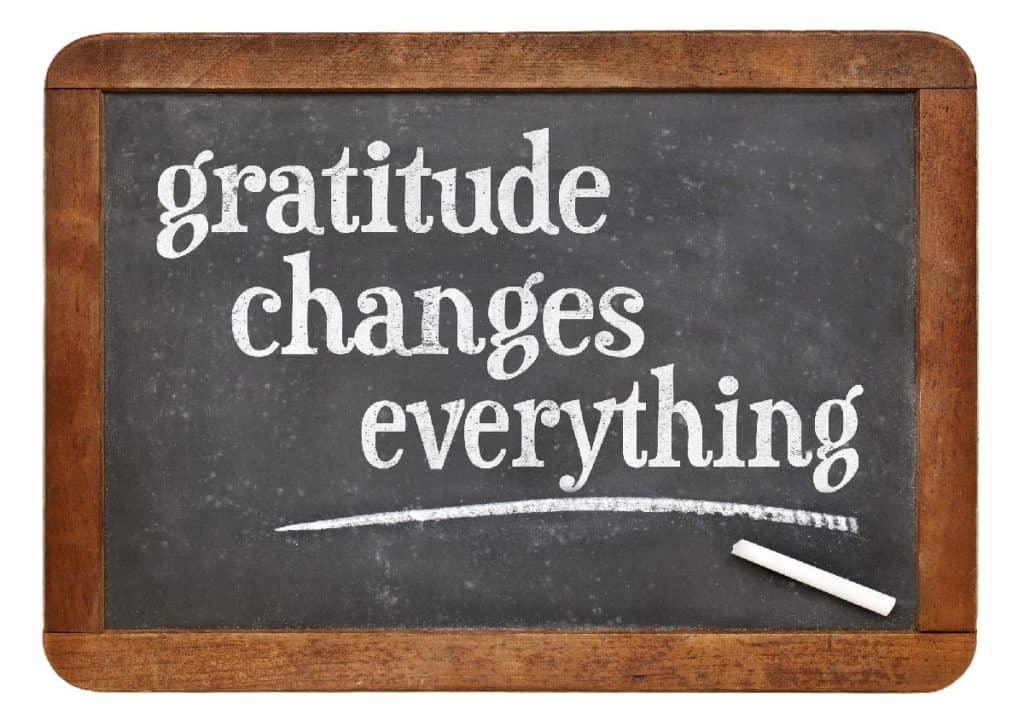
It’s often been said that a lot goes into a recovery process than just physical therapy. One’s frame of mind can affect how a body is being molded for the better.
So, why is gratitude important in recovery? Being thankful will help us focus on the good and give us energy and confidence. By adopting an attitude of gratitude while in the recovery process, the person opens themselves up for the chance to become a better version of themselves.
Definition of Gratitude in Recovery
Does an attitude of gratitude affect recovery? To answer that question, it is important to understand the concept in its entirety first.
In essence, gratitude in recovery is to be aware of the fact that one is in recovery and that being in such a condition will ultimately put the body back on the path towards complete reconditioning.
This is why gratitude in recovery has a simple concept. It is about helping yourself understand that being in the recovery process is not something that should be disruptive or uncomfortable. Rather, to be on recovery is an essential part of the process towards regaining control over one’s life.
Gratitude is simply defined as the state of being grateful. From that definition alone, one could see that the focus should be less about what ails the body and mind but what is helping it recover.
By focusing on the more positive aspects of life, one allows their mind and body to heal in an environment that is conducive towards full recovery.
Also, gratitude is not just expressed inwards. In recovery, every thought that the person comes up with must be actionable.
Therefore, adopting a grateful mindset while recovering is also about actively implementing changes in one’s habits and lifestyle that aid in maintaining a positive outlook in life.
Why Gratitude Is Important in Recovery
The reason why gratitude is important is the fact that recovery is a rather long and arduous process. Healing physical and emotional wounds will take a lot of time and effort. It will demand a lot from the person. It will include their commitment and consistency.
Whatever the recovery process demands that you do, it will always require you to do it regularly and consistently.
That need to maintain focus can be tremendously taxing on the mind, especially for those who already are compromised mentally and physically.
A lot of people in recovery stop mid-process because they lack the proper emotion to anchor themselves and maintain the required willpower and commitment.
Also, most people have to address a core problem in the form of self-centeredness. Every thought and decision made by people with physical and mental wounds tends to revolve around themselves and their needs.
As such, the tendency to be self-destructive is high in recovery, even if that person has only ever meant well.
Thus, the primary reason why being grateful is crucial to recovery is that it ultimately helps the person address the core issues present in their mind and body.
And if done right, the person can maximize the effects of their recovery while also establishing a lifestyle focused on the more positive and creative aspects of life.
The Benefits of Gratitude in Recovery
So why is gratitude important in recovery? It all boils down to the benefits that having such an attitude can bring to the process. When it comes to any recovery process, an attitude of gratitude can contribute three particular benefits, which are the following:
1. Focus on the Positive
One of the first things that an attitude of gratitude addresses in the recovery process is the tendency to hyper-focus on negative thoughts and emotions.
Most of these arise from the fact that recovery itself is demanding both physically and mentally, as well as the feeling that nobody else understands what the person is going through.
Soon enough, you will find the person undergoing recovery thinking along the lines of “this is too much!” or “this will never work”.
By being grateful, you get to focus more on what can work out well and what opportunities await you in the future. In essence, an attitude geared towards gratitude will help you become more hopeful that things will work out for the best eventually.
2. Energy and Confidence
The rigors of recovery might give rise to self-defeating tendencies as you become more critical of yourself. This might help in curbing unwanted behavior, but it does not help in the long term, especially in the matter of your self-confidence.
By being grateful in your recovery, you replace that negative reinforcement with more positive energy. You do things not because you must but because you want to.
By enforcing agency in your actions, gratitude will help you get the confidence you need to see things through.
3. Reduced Stress
Getting stressed out in the recovery process can rob any person of the willpower to complete their healing. After all, why bother with something that will only leave you with a lot of stress even if there are countless benefits to such an endeavor.
Fortunately, much of this problem can be dealt with by a change of perspective. At most, being grateful helps you become more content with your life. Also, it might help you understand what stresses you out the most and, in turn, help you find ways to avoid such stress in the future.
Why Gratitude Is Important in Recovery: Conclusion
As we express our gratitude, we must never forget that the highest appreciation is not to utter words, but to live by them – John F. Kennedy
Why is gratitude important in recovery? If you think about it, much of what you can achieve in a recovery process is dependent on perspective. That is to say, the way you feel and react to stimuli will determine how successful you are in healing your mind and body.
Thus, a mind that is focused on healing, growth, and letting go of all that pain stored inside will be just as effective as any therapy. By developing an attitude of gratitude towards recovery, you become a better version of yourself with a reduced chance of slipping back to your old ways.
Related Posts:
Why Is Gratitude So Powerful: 10 Most Important Benefits of Appreciation
5 Spiritual Benefits of Gratitude That Can Change Your Life!
How to Develop an Attitude of Gratitude: 9 Easy Ways
How Can Having a Holistic View Help You Become a Better Person?








Indeed, “frame of mind” is essential in healing.🕊
It is indeed!